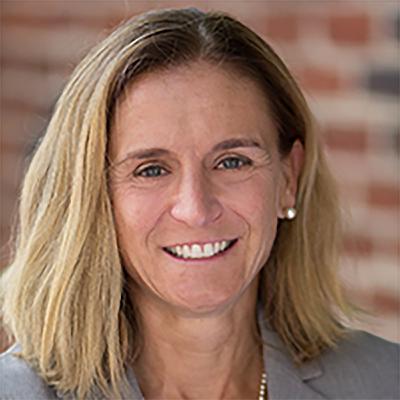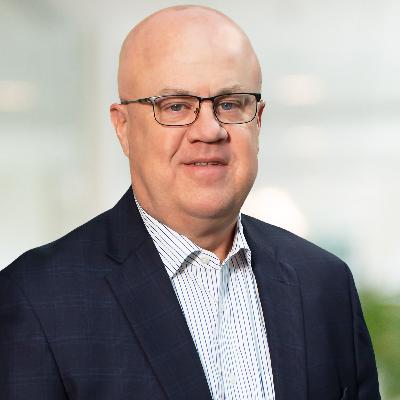Josh Vire, MBA, MEd., SLP - An All-Patient Solution for Managed Medicaid
Description
In today’s episode, we revisit our episode with Josh Vire, Vice President of Value-based Operations at CHESS Health Solutions, where he discussed what has been learned during the move to managed Medicaid in North Carolina and what CHESS brings to the table with its all-patient solution.
Josh Vire, welcome to the Move to Value podcast.
Thank you, Thomas. Thanks for having me. Pleasure to be here.
So, Josh, let's talk about managed Medicaid. First, can you tell me what is managed Medicaid?
Sure. It may be easiest to start by sort of describing how traditional Medicaid works. In traditional Medicaid, typically this operates under what's called a fee for service payment model. This model is going to reimburse providers directly for every service that they provide to Medicaid beneficiaries. And generally the upside to this model is that it's going to allow for the flexibility and provider choice for the beneficiaries. But what we often see is that this leads to fragmented care and ultimately the incentives in this fee for service type model really incentivizes the volume of services over outcomes. So, in contrast to that, Managed Medicaid utilizes alternative payment models including capitation and what are called value-based payments. And the way that the capitation works is that a managed care organization or a MCO as they're referred to will receive a fixed monthly payment per Medicare beneficiary that's going to cover all their health care needs. And then that fixed payments are paid regardless the amount of services that are provided. And then those MCOs are going to use those funds to incentivize providers to be more cost effective in their care as well as incentivize sort of tighter coordination of the care. And then what they can layer on to those, as I mentioned, is the value-based care payments which are intended to reward providers based on the quality and outcomes of care rather than just the quantity of services provided. And so in theory, right, this would encourage more efficient, high-quality delivery of care. In addition, managed Medicaid may employ other payment models that are along that continuum of value based care payments, which could be like pay for performance or bundle payments. But really the goal there is to align the incentives to focus on driving down total cost of care as well as improving health outcomes for beneficiaries.
Well last December North Carolina made the transition to managed Medicaid and Chess spent the year prior to that establish establishing the infrastructure and beginning to make preparations to offer this service. Can you tell me why this decision was made and a little bit of the story about how Chess built this service line.
Absolutely. CHESS has a decades plus long history of working with providers to transform care delivery to value based care. And historically our focus has been on traditional Medicare, Medicare Advantage and commercial contracts. But as we went through our engagements with our value partners and then as we began to have discussions with providers across the state, we heard consistently that one of their pain points was the need to work with of having to work with multiple enablement companies to serve all their patients. So some enablement companies only work with MA or maybe the traditional Medicare options or commercial. But no one was really acting as sort of a one stop shop in in serving the entire patient population for these providers. So our decision to expand our services to include Medicaid was really driven by our desire to be what we call an all-patient solution, which essentially just means we want to be able to align incentives across the provider's entire patient population. And really that's because we believe this is how true transformation can and will occur, not in certain segments, but by treating all patients with an eye towards that cost containment and better outcomes. Now we were fortunate that we had a sister company that focused solely on Medicaid for a number of years. So over the last year, our focus has been on adopting the knowledge, building the care management capabilities, the platform, our data and analytics capabilities of our senior of our sister company into the CHESS environment. And so I'm actually pretty excited to announce that that transition was completed earlier this month. So Chess has now reached our goal of being an all patient solution for practices in North Carolina.
That’s outstanding. Congratulations. I know that there there's a lot of hard work that went into that.
A lot of hard work, a lot of hard work, a lot of lot of commitment from a lot of great folks on our team. It's been, it's been a journey but we're super excited about it
Outstanding. So Josh, formerly Medicaid, let's talk about delegation for a second, so Medicaid practices were delegated as Carolina access one and two and now practices are called advanced medical home or AMH. So what are the differences in the AMH tier 1-2 and three and how would a practice move from 1 tier to the next and is it possible for practices to be downgraded?
Sure. The answer, short answer is yes, it is possible. And when we look at the AMH tiers, there are kind of two factors really to look at. One is who's primarily responsible for the care management and then there's the level of care management service that's actually being delivered. So if you look at tier one, which is the lowest tier, health plans are primarily the ones responsible for ensuring that patients receive care management services. And on that continuum of care management intensity, this offering just tends to be more broad and generally targeted. So looking at getting folks in for annual Wellness visits and follow-ups, but generally more less targeted. for Tier 2, typically the health plan continues to remain primary responsibilities for care management, but the interventions tend to be a bit more targeted to specific populations. And then there's Tier 3, which is the highest tier and that's where we really want practices to be because it allows for practices to assume primary care management responsibilities either directly or through a partner such as CHESS. And then Tier 3 also allows the practice to receive higher payment than the other tiers. But the requirements are more stringent. So for example, practices have to be able to receive claims, meet data and security requirements. They have to be able to risk stratify patients, provide complex care management and provide transitional care management. So while it is the where we want to get practices to in terms of the tier, there's a lot of requirements that come with that. And so that's sort of the determining factors. And so yes, a practice could work with either build internally the capabilities or again work with a partner's CHESS to reach to Tier 3 or if they choose to not receive those Tier 3 payments, they could pare down and move to a up and down that Tier to a Tier 2 or to Tier 1 performance category.
Interesting, Josh, in your mind, what has been the biggest hurdle you've seen in entering the managed Medicaid market and how has chess overcome these challenges or these barriers?
Yeah, it's, I would say there's many little hurdles as opposed to one big hurdle and a lot of it has to do with just sort of the newness of managed Medicaid and that transition. So as we've been working with the multiple health plans, the PHPS to get into this space, what we're learning is that communication is, is challenging because they all sort of talk about things in a different way. There doesn't seem to always be a cohesive way in which they're talking about their contracts and how they're set up. There's also then a lot of administrative burden that is placed in, in doing managed Medicaid. There's requirements that are pretty stringent that cause sort of operational challenges. But in general though I again as I mentioned before we've been very fortunate that we had the sister company that who has been dealing in Medicaid for a number of years and being able to transfer those people, those resources, that knowledge into CHESS to be able to enter into this market has been a been a huge benefit for us to overcome. And I think is what is allowed me to say that we don't have a big hurdle they're just little minor hurdles that we're working through as we're entering into this market.
That's great. Well, what are the three core services that CHESS offers?
Yeah. So in speaking with practices, what we learned is that as they as they have sort of evaluated their services in in getting to Tier 1, Tier 2, Tier 3, where they should, where they should be going, what they should be putting in place that there's specific gaps that they that they faced that didn't allow them, that may not allow them to maximize the opportunities available in the managed Medicaid program. So what we've tried to do is to design our offering around these specific gaps. So just quickly the first gap that a lot of practices said that they would have in in entering into managed Medicaid is information systems and data aggregation capabilities to be successful when managing their Medicaid populations. And so we offer a comprehensive population health platform that manages all data integrations including those from the payer and other disparate data sources. And this platform is designed to meet all the AMH Tier 3 requirements, so we can handle that for practices or licensing that to them. Another area we heard that practices lack the ability is to staff the full scope of care management services that are required for the Medicaid population. So what we've built is a full care management del










